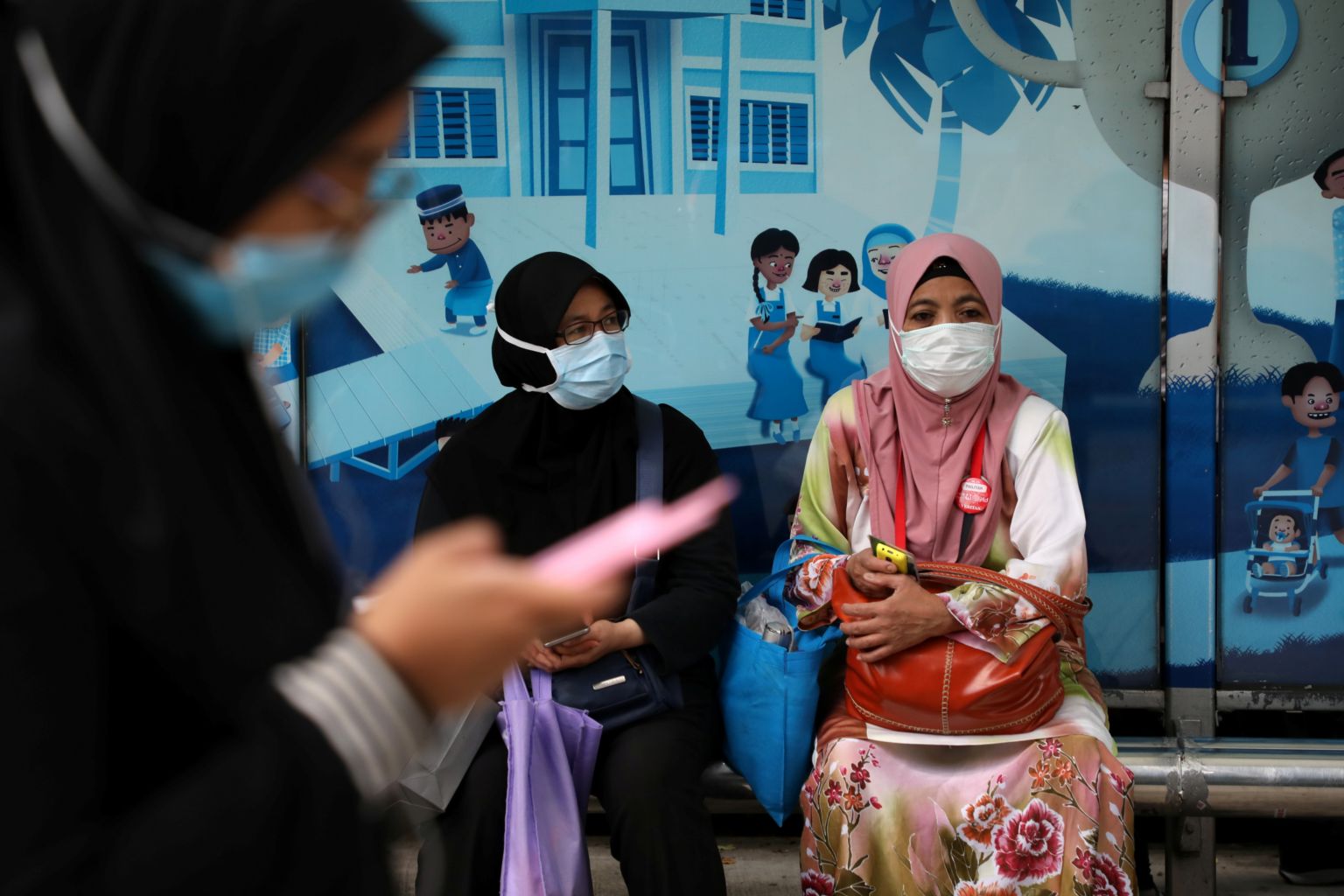Coronavirus: Malaysia bans face mask exports but prices to go up
Sign up now: Get insights on the biggest stories in Malaysia

People wearing protective face masks wait for a bus at a bus station in Kuala Lumpur, Malaysia, on Feb 19, 2020. The price of the three-ply face mask will now cost RM2 (66 Singapore cents) instead of 80 sen per piece.
PHOTO: REUTERS
Follow topic:
PUTRAJAYA (THE STAR/ASIA NEWS NETWORK) - The Malaysian government has banned exports of face masks effective from Wednesday (March 18), said the Domestic Trade and Consumer Affairs Ministry on Friday.
Minister Alexander Nanta Linggi, who announced this, said the government was also allowing imports of the product to ensure sufficient supply.
However, the price of the three-ply face mask will now cost RM2 (66 Singapore cents) instead of 80 sen per piece.
Datuk Linggi said the price of face masks needed to be increased due to higher cost materials needed to produce the masks.
"By allowing face masks to be sold at RM2, we hope to encourage local manufacturers to produce more.
"For exporters, this price will help cover the costs to bring the product into the market. With this, we hope to increase the availability of face masks," he said after jointly chairing a meeting with Agriculture and Food Industry Minister Ronald Kiandee to discuss with stakeholders in the food production and retail industries.
Datuk Kiandee said that food producers had raised some issues which he would bring up with the National Security Council.
He said, for instance, while chicken and egg production was considered essential, farmers needed its support sector to also be in business during the restricted movement order period.
"For now, stakeholders say they are able to meet market demand, so there is no need for consumers to panic buy," he said.
Malaysia introduced a movement control order this week, which takes effect until March 31, in an effort to stem the spread of the coronavirus.
It bans public gatherings, and all religious, sporting, social and cultural events. Schools, universities and businesses will stay closed, but essential services such as supermarkets, banks and pharmacies will continue to operate during the two-week period.
Malaysia is the worst-affected by the coronavirus in South-east Asia, with the number of those infected reaching 900 cases, and two deaths reported.

